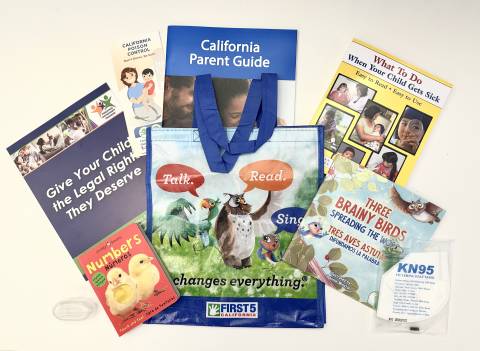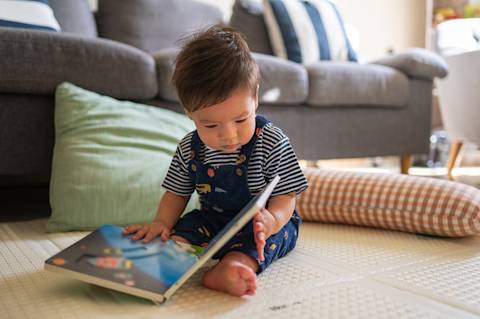The first day of school can be a bittersweet moment for caregivers, especially when our children go off to preschool or transitional kindergarten (TK) for the very first time. It’s exciting to watch them grow and learn, and it can also be hard saying goodbye each day. But early school attendance benefits your child’s development in many ways and provides a strong foundation for future learning.

Children typically attend preschool or TK from ages 3 to 4 and kindergarten at age 5. There are a few different reasons why early school attendance is so beneficial for our little ones:
Supports brain development: During preschool and TK, children are constantly learning new words and gaining communication skills. They have the opportunity to try new activities that involve counting, sorting, and simple problem-solving, and they might begin to understand numbers and patterns. Each of these learning moments help their brain develop, setting a strong foundation for the future.
Helps them develop social and emotional skills: As children interact with their peers in a safe and structured environment, they begin to form friendships and learn valuable lessons about cooperation and empathy. At the same time, children are guided by adults other than their primary caregivers, allowing them to learn how to follow directions and respect other adults. Attending preschool and TK can also help children learn about managing their emotions and developing resilience, or the ability to bounce back from challenges. They often learn new ways to express their feelings, resolve conflicts, and cope with setbacks.
Encourages strong school attendance as they get older: A research study found that children who consistently attend preschool have a much higher chance of having good attendance in later grades compared to those who frequently missed preschool. Children who attend preschool and TK also tend to be more prepared for kindergarten, which leads to higher academic achievement in other grades. When children don’t attend early schooling, they can miss out on developing valuable social and emotional skills as well.
Builds a consistent learning routine: Going to preschool is likely the first time children have to learn how to act in a more structured school environment. They develop essential classroom skills like time management, organization, discipline, and self-regulation. Gaining this early experience prepares them for elementary school, grade school, and beyond.
Reduces the achievement gap: Preschool and TK programs help level the playing field by providing all children with a strong foundation for learning and development, such as teaching them early language and math skills. As a result, all children have equitable access to both academic and social learning opportunities. Many programs offer additional support services such as nutritious meals, healthcare, and family resources. During preschool and TK, teachers might be able to identify potential learning needs, developmental delays, or other challenges early on that might impact a child's academic progress. These early boosts can help set children up for long-term success in school and life.
Helps spark a love of learning: Preschool and TK teachers are experts in making learning fun! Early education programs emphasize the importance of learning through play and hands-on activity, which encourages children to enjoy the process.
Consistent attendance in preschool, TK, and kindergarten is so important in supporting your child's early learning experience and sets the foundation for strong school habits throughout their lives. Establishing a daily routine with regular wake-up and bedtime hours can help ensure consistent school attendance. It's natural for children to miss a few days due to family conflicts or illness, and as their caregiver, you know when it's best for your child to stay home. To stay up-to-date on their progress, you can develop a relationship with your child's school and teachers. This collaboration allows you to stay connected and actively participate in your child's educational journey.






